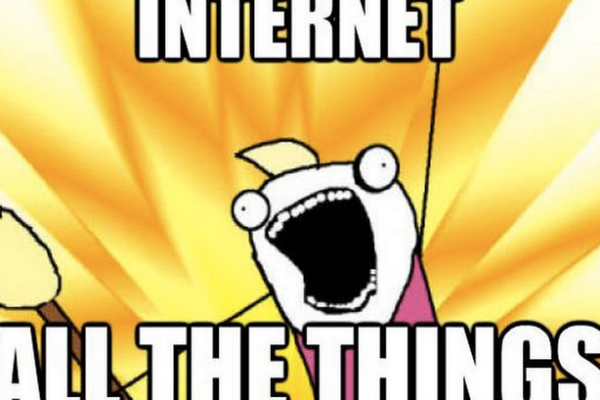A successful web content strategy requires support from people all across an organization — people with a wide range of experience and comfort levels when it comes to web work. To get our people invested in web content and thinking strategically, we first need to change the culture and thinking surrounding “web” in our institutions. Alaina Wiens, formerly at UM-Flint and now with the Flint & Genesee Chamber of Commerce, will offer practical advice for influencing culture change on your campus, and convincing your people that they have a part in the “web” after all.
Alaina asked the Twitterverse “what’s wrong with websites in higher ed?” She got:
- too internally focused
- not user-focused
- structured around org charts
- too dense
- quicklinks (“we’ll just put it in a big A-Z list!”)
- catering to too many audiences
- non-responsive
When asked how we could fix it:
- commitment from leadership
- clear goals
- more staff
- better collaboration
- “proof over politics”
- training
- better tools
- content strategy
- web governance
- more resources
- vision
- trust
- a new CMS
“Ultimately, we need to change the way we think about the web.”
Once upon a time, in olden days of the web, institutions would put out sites, stuffed with every possible piece of information. Some had great information, some were terrible. Some were built, some where slapped together. “Other duties as assigned” became “the person who updates the website.”
But ultimately, in 2015, all the places where you interact on the internet — all your channels — ARE your website. You are more than your website. And we need to redefine what we know as “the web.” And although the web changed, what we do, at the root level, has not. The care and feeding of your website may not be something that you want to just trust anyone with, but moving forward will require us to let go a little bit.
So we installed CMSes and gave people the power — but some people don’t know what to do with that power. Whether that’s handing the keys to the CMS to someone, or dealing with people who don’t want that power — has made this new world of the “web” uncomfortable.
But if you work on yourself, you can help them. Be the Lorax.

We can make people care about the web! Here’s your toolbox:
- Reframing
When we ask people to look at the web in a new way, how are we framing that change for them? That change requires consistency and repetition. It’s rewarding when we discuss the web in right way; no more mandates (“here’s the new rule”) or silos (“but I can’t use my time on you”) or dictating (“do it this way”) or hoarding (“these are my images”). Instead — explain, listen, collaborate, and share, and that will empower people. - Empowerment
We get a lot of “well, I’m not a web person,” and it’s common for supervisors to want to “leave that stuff to the web team.” But we can show people that they can accomplish things (regular training sessions & constant help, remind them of the “how” and not just the “why”), use the successes of others (show how other departments have had success), be honest (about what it is you’re trying to do, and in what spaces you yourself have more to learn), and share. We’ve spent so much time getting them to trust us — and they’re almost there — but they need to know that their people can be experts too. Some of the solution lies in letting go of our own “expert” status. Let the people who know their departments and their programs the best lead the charge. - Reinforcement
When you see results — and you’ll see results — reinforce them. But realistically, when we’re asking people to change their writing or the image sizes, they’re not going to get excited about it. Find the short-term wins and as Alan Deutschman said, “identify, achieve, and celebrate some quick, positive results for the vital emotional lifts they provide.” Highlight and reward the great examples. - Support
We need to show people that we’re in this together. Ongoing education, explanation, patience (when you have to sit down with someone every week to make the same minor edits, that time is very important to the end user), open-mindedness (maybe someone’s not living in the web space like we do all day, but they’re on the user end and they may have really important insight), and transparency (when you’re honest about issues as they occur, you’ll get more trust and buy-in than if you always try to play the expert).
It’s a lot of work, and it doesn’t happen overnight, but at the end of your day, the web isn’t just made of people like us who do it, but people all across campus who are trying really hard to make something great happen. If there’s any hope for long-term sustained greatness, we need to work with the people — the behaviors, the feelings — that make that happen.
Culture change has to start somewhere; let it start with you.
Learn more from Alaina; find her at alainawiens.com. Slide deck from this presentation here.

